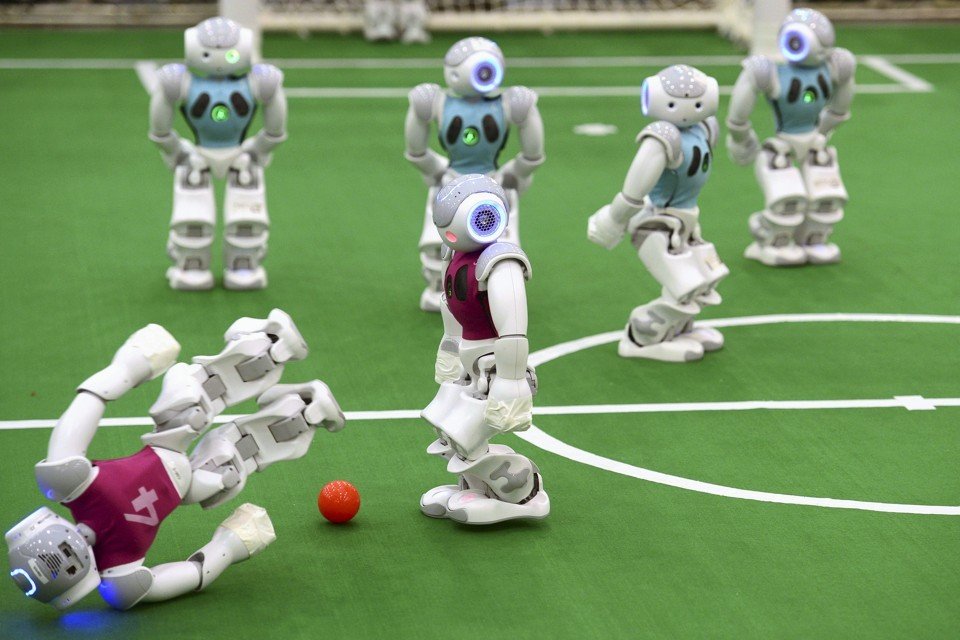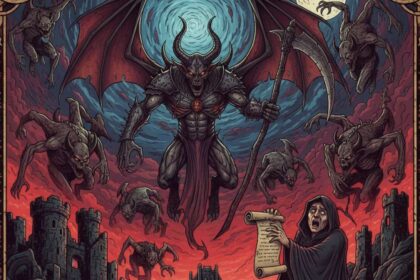Term
This is often just a fashionable name for a computer program

In science fiction, the possibility of a threat from an artificial Intellect (AI) is related to the relationship between people and intelligent machines. Whether it’s Terminators, Cylons, or ancillary machines like the Star Trek computer or the Star Wars droids, machines are deservedly called artificial intelligence when they become reasonable-or, at least, aware of themselves enough to act skillfully, Unexpectedly and at will.
What about the current explosion of “supposedly AI” in the media, industry and technology? In some cases, to name something “AI” in principle is possible, albeit with a stretch. Robots do not compare with R2D2 (or Hal 9000), but they have a set of sensors, data and computing capabilities to perform a complex task of driving a car. In most cases, systems declared as AI do not realize themselves, are not intelligent, do not have the will and can not surprise. It’s just a program.
Examples of misuse of the term “AI” can be found anywhere. Google sponsors a system that defines inappropriate comments – the machine-learning algorithm Perspective. But it turns out that you can fool him with simple misspellings. The AI should strengthen the US border, but in reality it turns out to be just a network of sensors and automatic machines with dubious capabilities to compile a human profile. Similarly, “AI for tennis” is just an improved sensor using commercially available computer vision. Facebook talks about the development of AI that can determine suicidal moods on posted records, but if you look closely, it turns out to be nothing more than a word tracking filter that marks posts for their subsequent consideration by people.
The miracles of AI are extolled not only In the technical sector. Coca-Cola is going to use “AI-bots” to “quickly collect advertising materials on the knee” – whatever that means. Similar attempts to force AI to create music or write news at first glance looked promising – but AI-bots trying to fix typos and links in Wikipedia were stuck in endless cycles. According to the consulting firm Botanalytics, which deals with the interaction of people and bots (no, really!), 40% of interlocutors stop trying to communicate with bots after the first time. Maybe it’s because the bots are just ordinary systems like “press X to find out Y” in the fashion packaging, or the cleverly automated Mad Libs game [настольная игра с пропущенными в тексте словами, куда нужно вставить случайные слова и затем прочесть её вслух, угорая от абсурдности – прим. перев.].
AI is when computers act like In the cinema
AI has become a fashionable theme for corporate strategies. An economist from Bloomberg Intelligence, Michael McDonagh [Michael McDonough] tracks the mention of “AI” in the transcriptions of public discussions of the financial results of companies [earnings calls]and notes a large surge in the number of references in the last couple of years. Companies boast of unsolicited purchases in the field of AI. The Global Human Capital Trends report from Deloitte Touche Tohmatsu Limited [международной сети компаний, оказывающих услуги в области консалтинга и аудита – прим. перев.] in 2017 claims that AI has already made a “revolution” in the life and way of thinking of people – but without the specifics of the specifics. Nevertheless, the report concludes that AI forces the leaders of corporations “to rethink some of their main structures.”
In the media and in communication, the simplest possibilities are sometimes inflated to the wonders of AI. Last month, Twitter announced an update that helps protect users from low-grade and offensive tweets. All the update comes down to a simple update of the system, hiding records from blocked, muted or new accounts, as well as adding some unmentioned content filters. And still, such changes, consisting in something not much more complicated than additional conditions in queries to databases, are described as “the constant work of the company to make AI more intelligent.”
I asked My colleague from Georgia Tech, Charles Izbel, an AI researcher, to comment on the meaning of the term “AI”. He immediately replied: “It’s when computers act like in a movie.” It does not sound serious, but it emphasizes the inherent AI connection with the theories of cognitivism and reason. Lieutenant-commander Data gives rise to questions about what properties and capabilities make a creature intelligent and morally-as well as robobooms. Content filter, hiding records in social networks, made from accounts without avatars? It’s not that. It’s just PO.
Purity believes that the system can be called AI if it has at least two features. First, it must be trained in response to changes in the environment. Fictional robots and cyborgs do this unnoticed, thanks to the magic of the abstraction of the story. But even the simplest machine-learning system, such as the Netflix dynamic optimizer, trying to improve the quality of compressed video, receives data from people viewers and uses them to train the algorithm, which then makes the choice associated with the following video transmissions.
The second sign of this AI: what it learns should be interesting enough for it to be difficult for people to learn. This separates AI and simple computer automation. A robot replacing people-workers in assembling cars is not an AI, but a machine programmed to automatically repeat the work. For Izbel, a machine or computer with real AI would demonstrate self-management, would behave unexpectedly and out of the ordinary.
AI can remind creators and users that today’s computer systems do not represent something special
Nytie about unfulfilled achievements of AI, it may seem to you unimportant. If the segment of machines equipped with sensors and supported by data will grow, it may be useful for people to monitor the evolution of these technologies. But experience suggests that the computational achievements must be treated with suspicion. I have already said that the word “algorithm” has become a cultural fetish, in the mundane, the technical equivalent of the divine. Indiscriminate use of the term represents the usual, not devoid of shortcomings, software in the form of a false idol. With AI the same story. As the author of bots Alison Parish writes, “when someone talks about AI, he means a computer program written by someone.”
In the MIT Technology Review blog, Stanford Computer Science Specialist Jerry Kaplan writes something similar: “AI – this is a fairy tale, made in a hurry of incompatible tools and technologies. ” Experts on AI, apparently, agree with him, calling this area “fragmented and for the most part unmanageable.” In connection with the illogicality of using the term AI, Kaplan suggests replacing it with “anthropic computing” – programs that should behave like people or interact with them. From his point of view, the mythical essence of AI, including the legacy that comes from novels, movies and television, makes this term a horror story, from which one wants to get rid, and not the future one you want to hope for.
Kaplan is not echoed by the last people . When mathematician Alan Turing accidentally came up with the idea of machine intelligence almost 70 years ago, he suggested that machines would become smart when they could pretend to be people and thus deceive real people. In the 1950s, this idea did not seem real. And although Turing’s mental test was not limited to computers, then machines capable of carrying out relatively simple calculations still occupied whole rooms.
Today cars are constantly deceiving people. Not necessarily pretending to be people, but convincing the latter that they are good enough alternatives to other tools. Twitter, Facebook and Google – this is not an improved version of the city’s city halls, centers for gathering neighbors, libraries or newspapers – these are other types of these enterprises, controlled by computers, with their own merits and demerits. The consequences of these and other services need to be assessed from the point of view that they are just certain software implementations within corporations, and not the totems of the otherworldly AI.
In this sense, Kaplan may be right: rejection of the term may be the best Way of driving his devilish influence on modern culture. But the more traditional approach of Zabel is that AIs are machines that are trained, and acting according to the studied – also has its advantages. Defending its elevated status in the tradition of science fiction, AI can remind creators and users of the simple truth: today’s computer systems do not represent something special. These are just tools made by people, carrying out programs produced by people, possessing the properties and disadvantages of both.









